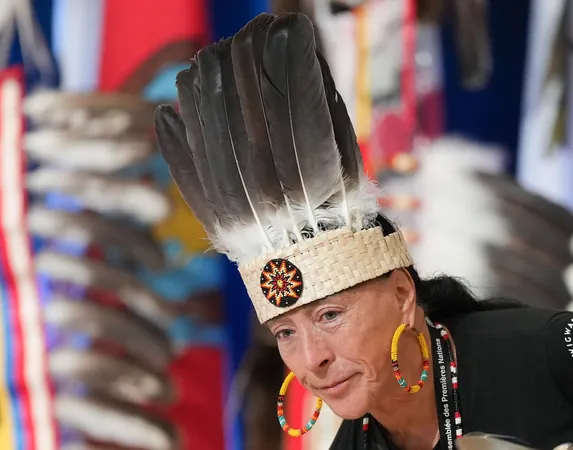
Indigenous Contracts Under Fire: Are Shell Companies Betraying Our Communities?
2024-09-24
Indigenous Contracts Under Fire: Are Shell Companies Betraying Our Communities?
In a startling revelation, the Assembly of First Nations (AFN) has raised serious concerns about the integrity of contracts awarded to Indigenous businesses by the Canadian federal government. According to AFN Regional Chief Joanna Bernard, a significant portion of these contracts, laid out as 6.27% of federal spending for 2022-23, may, in reality, only reflect a weak connection to genuine Indigenous ownership. Chief Bernard claims that the actual figures could be as low as 1%, and asserts that many of these contracts are funneled through "shell companies" that don’t offer meaningful benefits to Indigenous communities.
The federal government has been patting itself on the back for reaching its self-imposed objective of directing at least 5% of contract spending to Indigenous businesses. However, Bernard's testimony to MPs suggests a deeper issue: many of these businesses may not be truly Indigenous-led, but rather masquerade as such under the guise of joint ventures.
The Procurement Strategy for Indigenous Business (PSIB), a program designed to incentivize federal departments to engage with Indigenous companies, has come under scrutiny. Although it aims to increase Indigenous participation in government contracts, it also allows non-Indigenous firms to qualify if they enter into partnerships with Indigenous businesses. This has opened the door for potential exploitation, as noted with companies like Dalian Enterprises and Coradix Technology Consulting Ltd., which were involved in the scandal surrounding the ArriveCan app. These firms are currently suspended from federal contracts, and their partnership is under audit.
Chief Bernard argues that the current regulations fail to demand that benefits extend back to the Indigenous communities themselves. She advocates for the implementation of requirements that would mandate contracting companies to contribute to community initiatives, such as funding scholarships or job training programs. "We need to look at ways that we can benefit the communities," she emphasized, advocating for a more robust framework that protects and uplifts true Indigenous enterprises.
While some voices are concerned about the potential for abuse within the PSIB framework, others, like Philip Ducharme of the Canadian Council for Indigenous Business (CCIB), underscore the importance of recognizing the success stories that have emerged from the initiative. Ducharme urged that these positive narratives should not be overlooked or overshadowed by the troubling instances of misconduct.
Conservative MP Garnett Genuis, who called for the parliamentary study on this matter, criticized the government's effectiveness in managing these procurement issues. He emphasized the need for the government to foster genuine partnerships that benefit real Indigenous communities rather than facilitating access for companies with questionable ties.
Liberal MP Charles Sousa acknowledged the criticism, asserting that the government is actively engaging with Indigenous leaders to refine the procurement process. Discussions are ongoing about how to better identify legitimate Indigenous businesses amidst the controversy.
As the dialogue continues, the emphasis remains on ensuring that Indigenous communities are not left behind in the rush to meet bureaucratic targets. Will the government take the necessary steps to reform this program, or will shell companies continue to profit at the expense of the communities they falsely represent? The stakes couldn’t be higher.









 Brasil (PT)
Brasil (PT)
 Canada (EN)
Canada (EN)
 Chile (ES)
Chile (ES)
 España (ES)
España (ES)
 France (FR)
France (FR)
 Hong Kong (EN)
Hong Kong (EN)
 Italia (IT)
Italia (IT)
 日本 (JA)
日本 (JA)
 Magyarország (HU)
Magyarország (HU)
 Norge (NO)
Norge (NO)
 Polska (PL)
Polska (PL)
 Schweiz (DE)
Schweiz (DE)
 Singapore (EN)
Singapore (EN)
 Sverige (SV)
Sverige (SV)
 Suomi (FI)
Suomi (FI)
 Türkiye (TR)
Türkiye (TR)